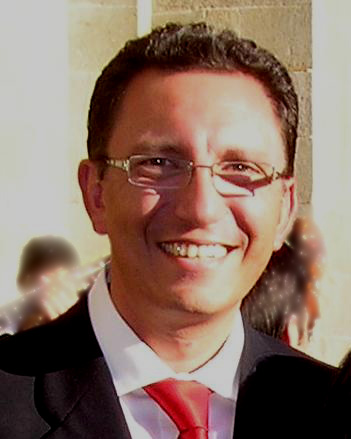 |
Departamento de Tecnología Electrónica, Universidad de Vigo, SpainE.E.Industrial. Campus Universitario. 36310 Vigo-Spain |
Juan José Rodríguez-Andina received the M.Sc. degree from the Technical University of Madrid, Spain, in 1990, and the Ph.D. from University of Vigo, Spain, in 1996, both in electrical engineering. He is a professor with the Department of Electronic Technology, University of Vigo. In 2010-2011 he was on sabbatical leave as a Visiting Professor at the ADAC Laboratory, North Carolina State University, Raleigh. His research interests include the implementation of complex control and processing algorithms and intelligent sensors in embedded platforms.
Dr. Rodríguez-Andina has authored over 160 journal and conference articles, and holds several Spanish, Portuguese, and US patents. He is co-author of the article awarded the 2017 IEEE Industrial Electronics Magazine Best Paper Award. Since 2016, he is the Vice President for Conference Activities of the IEEE Industrial Electronics Society. He was Editor-in-Chief of the IEEE Industrial Electronics Magazine (2013-2015) and Associate Editor of the IEEE Transactions on Industrial Electronics (2008-2018). He is currently Associate Editor of the IEEE Transactions on Industrial Informatics.
Use of Wearable Devices and Embedded Systems for Aging Patient Empowerment
As population ages and adopts more sedentary lifestyles, the incidence of some diseases (e.g., cardiovascular) is very high, threatening health at a worldwide scale. With life expectancy continuously increasing, it is reasonable to predict that the situation will become worse in the near future. Therefore, healthcare systems will be required to assist an increasing number of people, while being economically sustainable in the long term. In this scenario, it is very important to develop systems for patient empowerment, which help reduce the number of people to be examined in hospital for diagnosis of potential serious health problems, or the human resources required for rehabilitation purposes.
One promising way to address this challenge is the use of affordable wearable devices and embedded systems, together with suitable analysis or classification techniques. In this talk, three highly prevalent case studies will be discussed, namely, ambulatory screening of cardiac patients, diagnosis of hypertension, and rehabilitation of post-stroke patients.